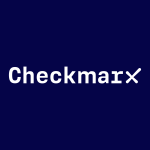What is our primary use case?
Since we have a lot of internal teams, the main team running this tool is composed of developers. Because of the security aspects of GitGuardian, they figured that we needed to bridge the gaps and work together.
GitGuardian creates a lot of alerts in the code. If someone uses new passwords or secrets, then we can see in which repository as well as who used it and left their password in the code. We monitor these things. However, they haven't given us a permission to work with alerts since it is more for analysis purposes right now, seeing what problems we have in the company, e.g., we are seeing a lot of people just dumping passwords in the code, which is not a good approach.
Our main strategy is focusing on moving testing quality and performance earlier on in the development process. Developers are focusing on this quite heavily.
We are using the latest version.
How has it helped my organization?
It quickly prioritizes remediation, but individual teams get to decide how they do things. The problem, where we work, is that we work in an agile setup. Each team decides how they want to do it. Sometimes, developers are prioritizing different things though. That is the reason why we started working with developers. We were trying to push the security agenda, because developers would just like to work on code. Most of them don't care about security. While this tool has helped with prioritization, a problem can be that developers are not taking the security prioritization into the mix.
Two weeks ago, I spoke with the main lead of the developer team. They said that we shouldn't close alerts ourselves, but the tool helps. From a security perspective, we collect the data since we will use it in the future with analysis, but the developers are closing the alerts. GitGuardian really helps us to collaborate since we can just copy and paste a particular incident, then ask them, "What are you doing? Why are you doing this?" That really helps.
GitGuardian has helped to increase our security team's productivity. Now, we don't need to call the developers all the time and ask what they are working on. I feel the solution bridged the gap between our team and the developers, which is really great. I feel that we need that in our company, since some of the departments are just doing whatever and you don't know what they are doing. I think GitGuardian does a good job of bridging the gap. It saves us about 10 hours per week.
What is most valuable?
I like the ease of the UI. The UI is very straightforward. It is easy to access and monitor. There are not a lot of hoops to jump through. Click on it, and everything is in the main dashboard. This is really helpful. With other systems that we are using in our company, we have a lot of other dashboards, and sometimes you need to click five times to see something. With GitGuardian, it is very easy to access alerts, which is very nice. I like the UI aspect of it because it is very easy to use.
The span of the solution's detection capabilities is good and very quick. Alerts and incidents poop up immediately.
The range of technology that the solution covers is huge, which is nice. There are broad SMTP credentials for generic passwords.
The documentation is good and very insightful.
What needs improvement?
I am unsure if they have a mobile app. That could be a feature or improvement in the future. A lot of our security dashboards don't have a phone app. A phone app helps because you can monitor things on the go. We are using the Darktrace solution that allows alerts on our phones, and we configure the alert threshold. That helps a lot. I think that a mobile app could be something that could be added in the future pipeline, if there is any demand.
For how long have I used the solution?
From a security perspective, we received access, as analysts, six months ago. We are using it every day to analyze things.
What do I think about the stability of the solution?
Performance-wise, I haven't observed any bugs or problems. It worked from day one. We never had any hiccups, and I haven't observed anything bad.
No maintenance is needed from our side.
What do I think about the scalability of the solution?
From the developer's perspective, they have said that there may be a problem with scaling. This may be a potential problem in the future.
How are customer service and support?
The technical support has been very nice. The salespeople and technical people at GitGuardian are very approachable. We have no issues connecting with them. I reach some of them on LinkedIn, so I don't even have to create a support ticket or something. If I have a question, I just write to them on LinkedIn, and say, "Hey guys, what is up with that?" or, "What is this problem?" They are very quick to answer, and I like that approach. They are very open to communication. It is not very formal. In some other companies, you have to create a ticket and wait three days. Because they started very recently, they have a different approach, which is good. I would rate them as eight out of 10.
It is easy to contact GitGuardian. Contact them for a demo. I would start there. That would be my advice because the people working there are very friendly and knowledgeable.
They were very eager to provide a demo to us. It was just one hour and they gave us information with an explanation.
How would you rate customer service and support?
Which solution did I use previously and why did I switch?
GitGuardian was our first tool of this type.
How was the initial setup?
It has worked from day one. The UI and design are very easy to understand; it is not complicated. The left menu has incidents, parameters, and API integration settings. It is so obvious, so there are no issues with it. Whereas, other systems have a problem. For example, we are using McAfee, and in order to find something, you need to jump through settings, going to this and that. With GitGuardian, I am seeing everything in one place and don't need to do a lot of button gymnastics.
What was our ROI?
GitGuardian has helped us increase our secrets detection rate by a lot, in the ballpark of 60%.
What's my experience with pricing, setup cost, and licensing?
With GitGuardian, we didn't need any middlemen.
Which other solutions did I evaluate?
We use the GitHub integration. In our company, we use a lot of different systems. I can see CircleCI, Azure, GitHub Actions, and other alert options. In the future, we will implement that. However, just knowing that there are options is already nice since some other security tools don't have many options. That is what I like about GitGuardian, there are a lot of choices. You can plan your strategy about how you will implement things and what you are going to do.
What other advice do I have?
There are product owners, senior developers, and day-to-day developers using this solution. There are 40 members connected to it, including 35 developers who are using it. My colleagues and I spend at least two hours a day going to the dashboard and looking into things.
If a security colleague at another company said, "Secrets detection is not a priority," then he is a very bad guy. It is a huge problem now with all the secrets in the code. It is important to monitor them, as it is a growing problem. I just heard a podcast this morning about security, where they talked about Symantec who did a research study about this particular issue. It seems like a lot of apps have this problem. It is really important to monitor these things and know about them in the code. Otherwise, you risk exposing things, then malicious actors can use them.
The security guy needs to go back to school, do some training, and really be open-minded about it since it is a growing problem. It will continue to grow as a problem since a lot of developers forget that IT security aspect. They just copy and paste stuff, then leave it in the code and forget about it. That is how attacks happen; somebody slipped, making a mistake or misconfiguration.
Secrets detection to a security program is very important for application development because developers are just ignoring it. They just commit the code, then the secrets are there. I feel GitGuardian is a good tool because it shows this to your face. As we continue monitoring, we plan to do a presentation of our findings to management.
Overall, I would give it a seven out of 10. There are a lot of good things about GitGuardian, but there were some hiccups with the development. I feel there are some small things that are not working for our developer team. The solution is great, but it would be bad to say, "10," without acknowledging some of the problems. So, seven is good and fair.
Disclosure: PeerSpot contacted the reviewer to collect the review and to validate authenticity. The reviewer was referred by the vendor, but the review is not subject to editing or approval by the vendor.











